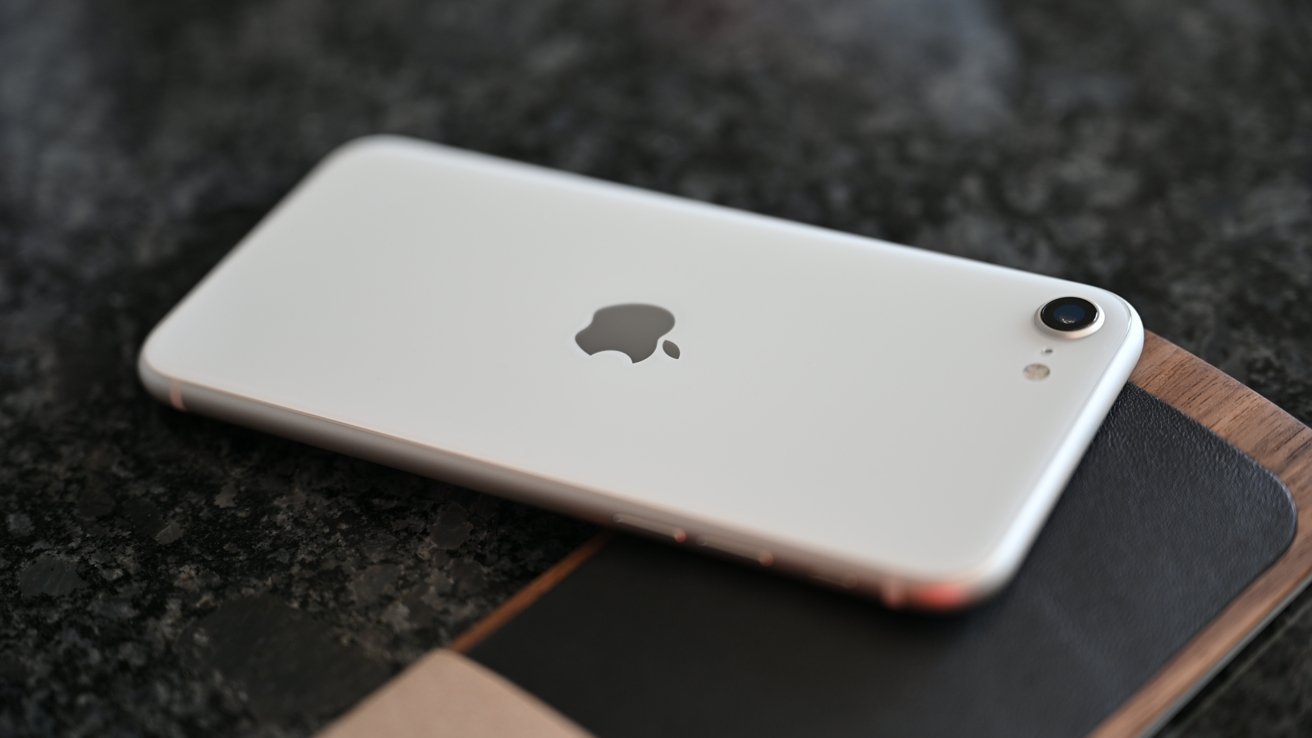The iPhone SE 4 may not have been canceled after all, with the compact model expected to sport both an OLED display and use Apple's in-house baseband chip.
In January, famed TF Securities analyst Ming-Chi Kuo declared Apple had canceled the iPhone SE 4 for 2024, rather than delaying its release. In a new update from the analyst, it seems the project is still in motion.
In Monday tweets, Kuo believes Apple has "restarted" its work on the iPhone SE 4, based on a supply chain survey. The model will now apparently resemble a "minor modification of the 6.1-inch iPhone 14," according to the analyst.
The model will also use an OLED display rather than LCD, with that being the biggest change to the specification.
Kuo believes the new model will be equipped with Apple's 5G baseband chip, made using a 4-nanometer process. The chip will only support sub-6GHz 5G under current plans, so not the blisteringly-fast mmWave connectivity.
(1/10)
— (Ming-Chi Kuo) (@mingchikuo) February 27, 2023
[Update] Apple has restarted the iPhone SE 4 and will adopt an in-house 5G baseband chip. The significant decline in Qualcomm's Apple orders in the foreseeable future is a foregone conclusion. https://t.co/0MeZDFnbzg
The January "cancelation" claim was largely down to the model acting as a testbed for Apple's own 5G modem design, which may have caused enough problems to force Apple to reconsider the project.
Evidently, Apple has made moves to make the iPhone SE 4 a reality once again, though it is still unclear whether the 5G modem had anything to do with it.
Kuo added in his tweets that the chip adoption would make a "significant decline in Qualcomm's Apple orders in the foreseeable future" practically a "foregone conclusion."
The iPhone SE 4's use of the 5G chip alone isn't enough to make Qualcomm worried, but Kuo thinks that Apple is still trying to determine whether the iPhone 16 series should use it. "The main challenge lies in whether Apple can overcome the technical obstacles related to mmWave and satellite communications," the analyst believes.
If the iPhone SE 4's use of the chips run smoothly in the first half of 2024, Kuo feels the iPad and Apple Watch will also switch over from Qualcomm's baseband chips. Overall, the move will "benefit Apple's hardware gross margin," and Qualcomm's Apple business "will decline significantly in the next 2-3 years," the analyst writes.
Hours before Kuo's tweet thread, Qualcomm CEO and President Cristiano Amon said the company expects "that Apple will do their own modem in 2024, but if they need ours the know where to find us."
Ming-Chi Kuo is a regular feature of leaks and rumors, and is often found to be correct, or close to it, when it comes to supply chain motions, as well as product line changes.
 Malcolm Owen
Malcolm Owen

-m.jpg)






 Marko Zivkovic
Marko Zivkovic
 Mike Wuerthele
Mike Wuerthele
 Christine McKee
Christine McKee
 Amber Neely
Amber Neely
 Wesley Hilliard
Wesley Hilliard

 William Gallagher
William Gallagher










11 Comments
OLED screen? So much for it being inexpensive.
I also love how Kuo claimed that it had been abandoned, but now a month later says it has been restarted. Just admit the earlier report was wrong and development never paused.
So how does the analyst scorecard work on this one? Ming-Chi Quo is perpetually praised as being “better than most,” yet here he’s played both sides of the same coin. When the next SE comes out or the line goes dark, will he get credit for being right either way?
It could be that Apple wanted to kill it and force SE buyers into buying a mini, but that didn’t happen. I think the SE would outlast the mini, because of its physical size and the last iPhone with Touch ID.
While I guilty of following rumor mill. This is turning out to be worse than a soap opera...
Qualcomm was never worried in the first place.
The fact that they have any Apple modem related business at all was only down to a strategic error by Apple.
The line "
Since then, Qualcomm has been simply raking in revenues it never planned on having anyway. Laughing all the way to the bank.
Apple will eventually stop buying those modems but QC will continue receiving patent royalties from Apple.